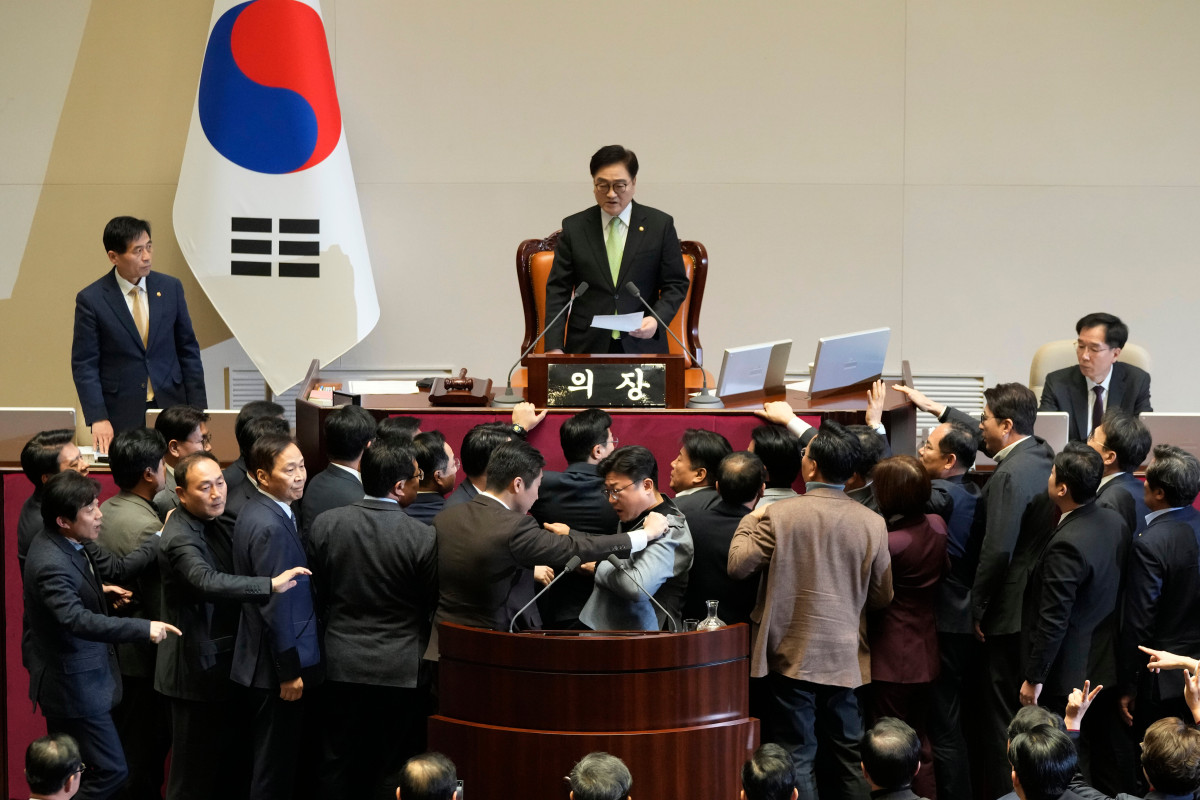
The vote was the second major impeachment in two weeks after President Yoon’s ill-fated martial law bid set off turmoil. The country’s currency has plunged.

South Korea’s leadership crisis deepened on Friday after lawmakers voted to oust a second head of state, the acting president, in less than two weeks.
The move prolonged the political vacuum that has gripped South Korea since President Yoon Suk Yeol shocked the country this month by briefly putting it under military rule for the first time in decades.
Lawmakers impeached and suspended Mr. Yoon on Dec. 14 over the martial law move, and Prime Minister Han Duck-soo stepped in as acting president. But Mr. Han’s tenure would also prove short-lived, as opposition lawmakers voted on Friday to impeach Mr. Han, as well.
This was the first time South Korea had impeached an interim leader. It meant that South Korea continued to be without a strong elected leader who could take charge of the government and military in one of Washington’s most important allies, at a time when the country is grappling with North Korea’s nuclear threats and economic challenges at home. The political uncertainty has pushed business and consumer confidence lower and caused the currency, the won, to plunge.
The latest impeachment “suggests to the world the possibility that Korea’s political unrest could be prolonged and worsen,” Jeong Hoiok, a professor of political science at Myoungji University in Seoul, said in an email. This would cause “significant harm to the diplomacy and economic status that Korea has built so far.”
Mr. Han’s impeachment meant that the finance minister and deputy prime minister, Choi Sang-mok, would be next in line to be named acting president. But like Mr. Han, Mr. Choi has no electoral mandate.